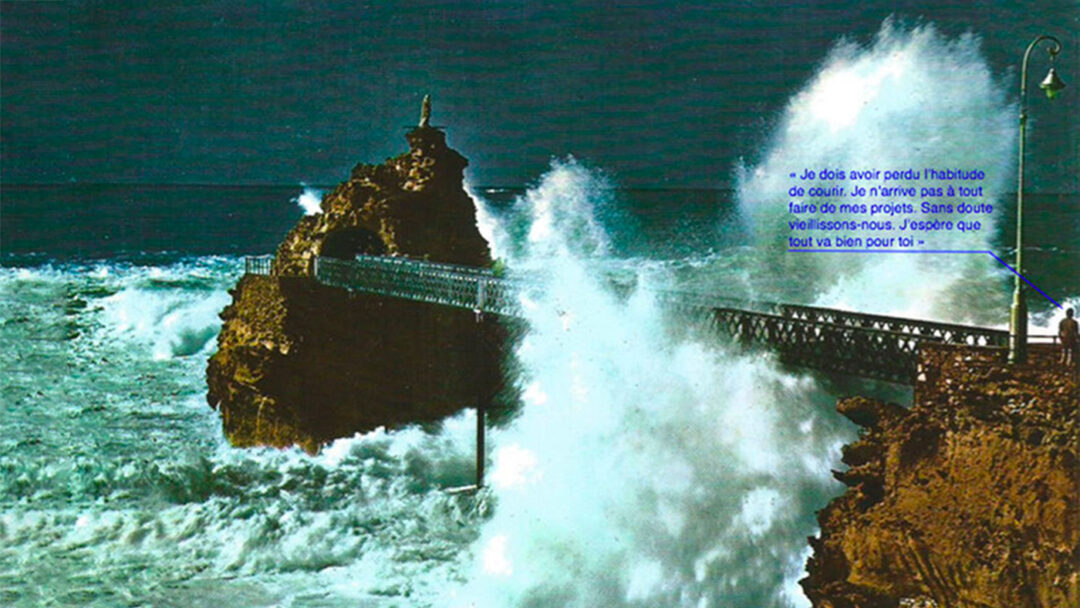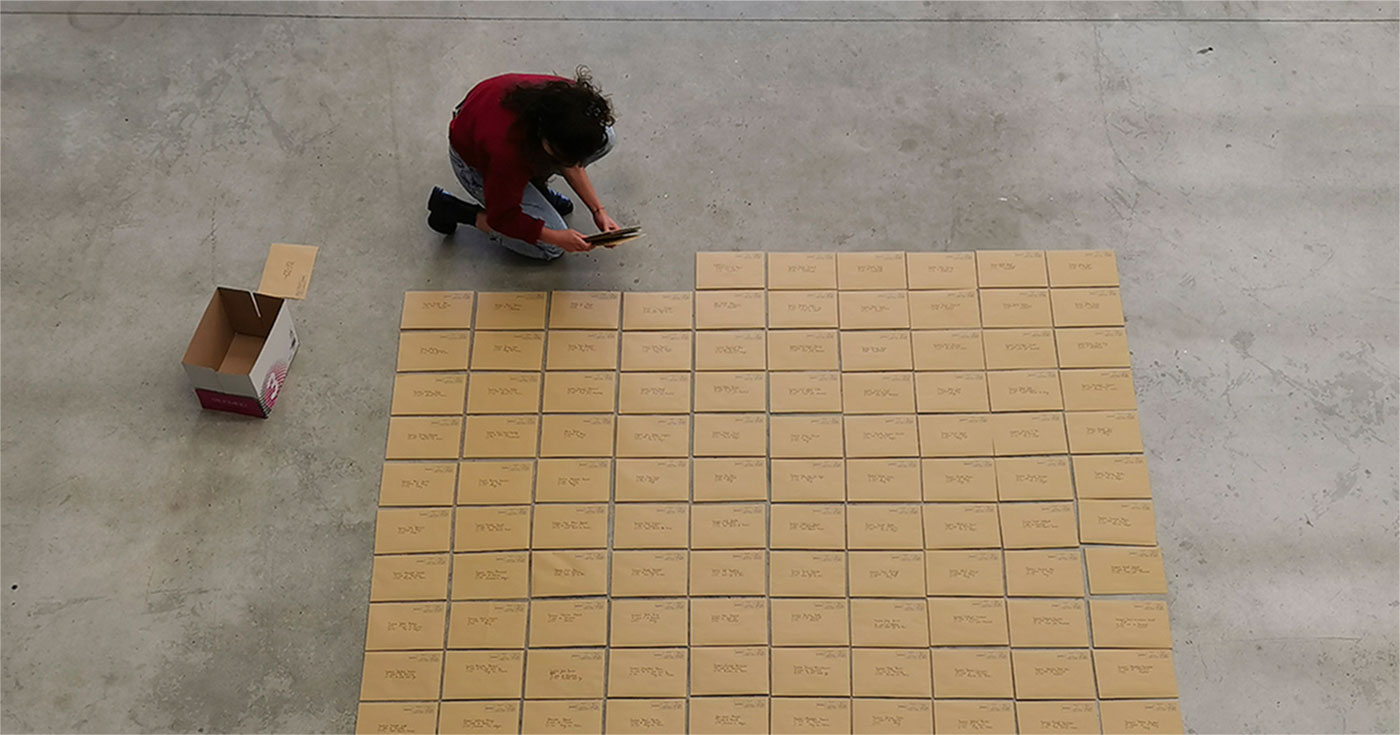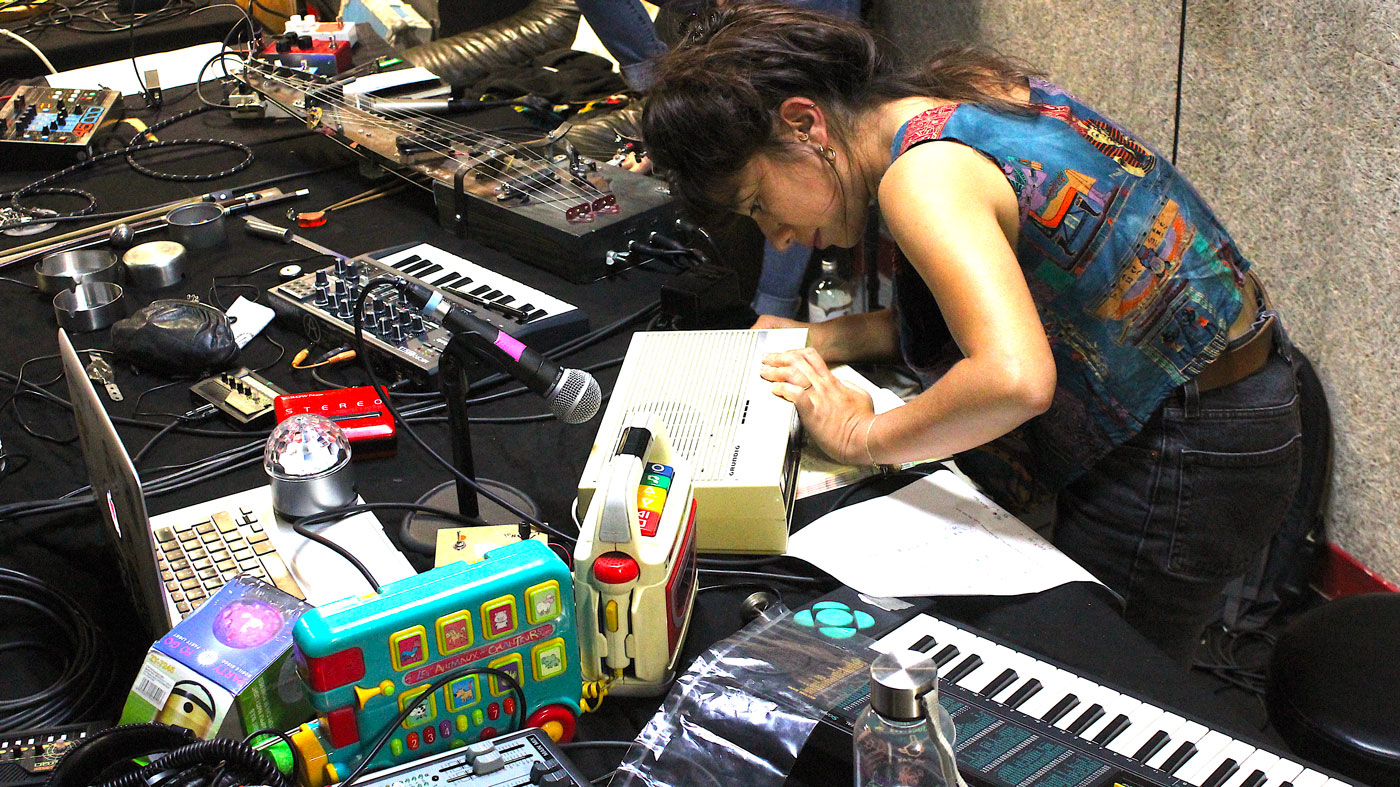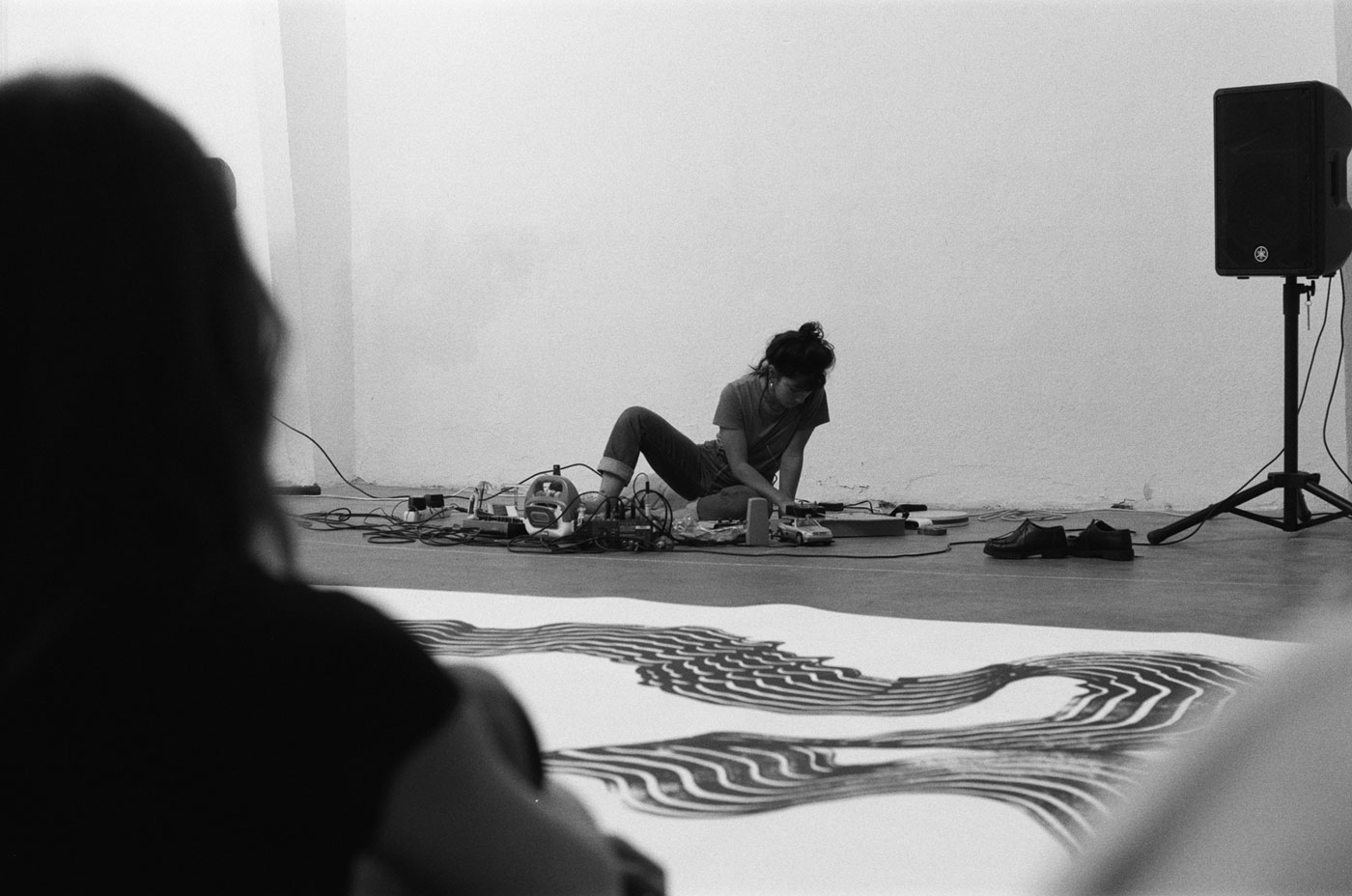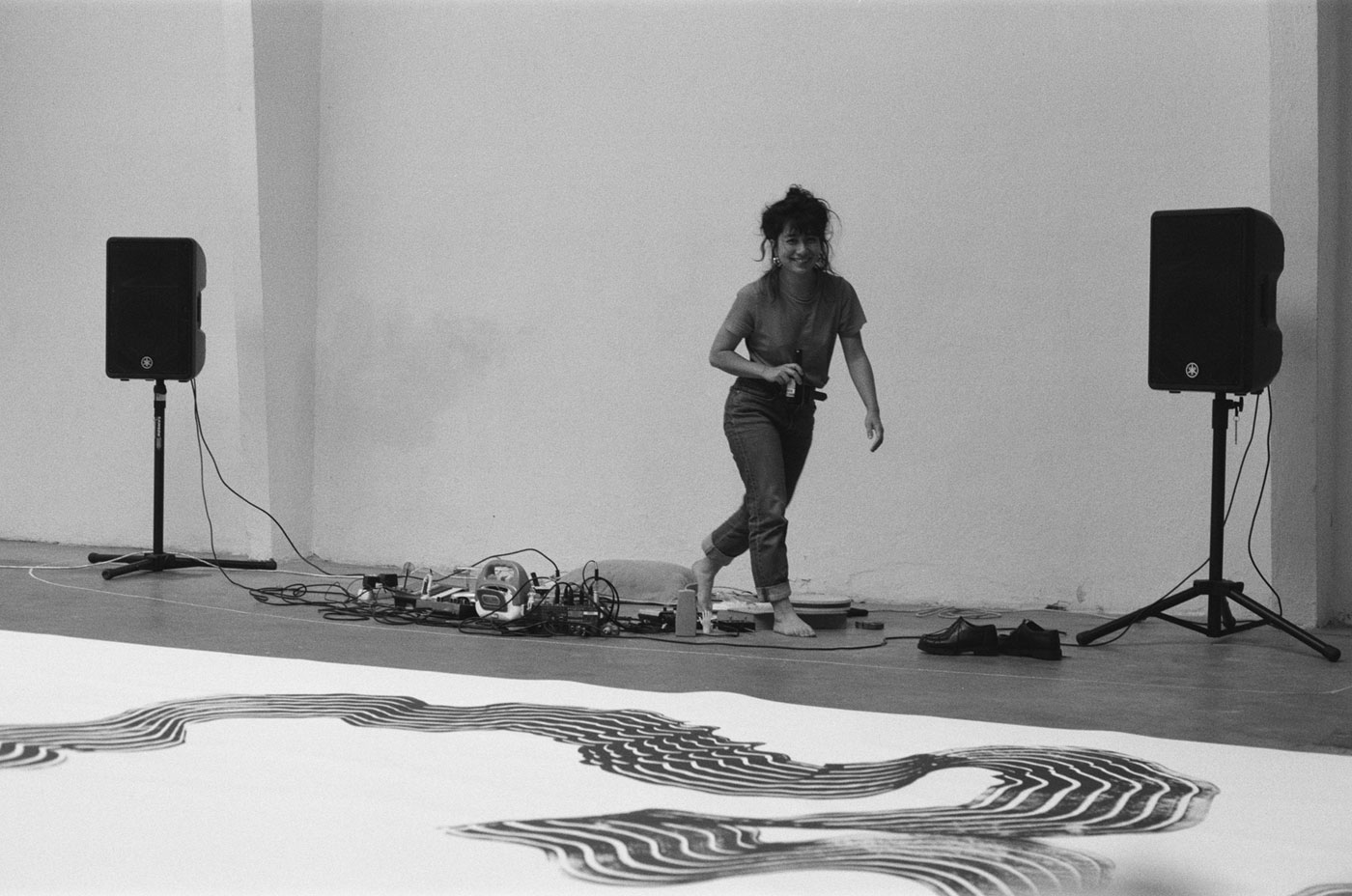Composer and sound creator, Anne-Line Drocourt explores sound through compositions, documentary pieces, installations, and performances for radio, theater, museums, and live performances. With a background in Modern Literature (Paris VII Diderot), a master’s degree in documentary writing and filmmaking (CREADOC, Angoulême), and a diploma in Sound Arts (ENSA Bourges), she seeks to create a poetic and rhythmic language from real-world recordings.
By writing and recording voices, noises, elements of landscapes, or machines, without distinction between these different sound materials, she weaves sound textures, manipulates sound effects, and assembles these sources into compositions that blend documentary narrative, fictional essays, and musicality. The sound material is viewed as a means of poetic writing, suggesting or narrating through silences, rhythmic breaks, and vocal textures, leaving room for each listener to create their own fiction and evoke their own memories.
Her work focuses on notions related to anecdotal memory and traces. Notably, she created *Quelques Lignes pour vous donner de mes nouvelles* (France Culture, 2018), a fruitless investigation around a found letter; *Odette et les mots des autres*, an audiovisual installation revolving around postcards and vacations (since 2020, Ateliers Médicis, le Bel Ordinaire, l’Été Culturel); and more recently *Tendres Spectres* (2022, ENSA Bourges), a sound installation summoning the anecdotal memories of deceased loved ones from a dozen strangers met through classified ads.
Her first solo exhibition *Des Vies courantes* (Grand Chambord, Domaine national de Chambord), blending sound and visual installation, explored the daily lives of individuals in a contrasting territory, based on a “daily life” questionnaire sent to strangers from the phone book.
Winner of the Prix Libération Apaj 2016 (Petit Inventaire), Mixage Fou 2016, and 60 Secondes Radio 2020 (La Dernière personne sur Terre), her work has been broadcast or performed in various contexts and festivals: France Culture, le Lieu Unique in Nantes, Longueurs d’Ondes in Brest, les Yeux Ouverts in Paris, Musée des Beaux-Arts de Nantes…
She also shares her practice through workshops with audiences ranging from 6 to 94 years old, regularly collaborates with Jet FM radio, and is part of the collective La Pause Goûter, creators of sound performances for young audiences. She also performs solo and live, using loops constructed from voice fragments and everyday objects: toys, rubber bands, kitchenware, etc.
She has lived in Nantes since 2022, where she works in her studio at Les Ateliers de la Ville en Bois.
Tournefou association

As a multidisciplinary art venue offering residencies, exhibitions, and educational outreach, the Tournefou association offers a range of activities for people of all ages, starting from childhood, such as its art workshops for children as young as six.
Its beautiful 18th-century Champagne-region buildings and tree-lined park naturally complement its mission of delivering artistic and cultural excellence in a rural setting, fostering meaningful encounters that inspire initiatives, social connections, and development. To achieve this, a team of facilitators, educators, and artists work together in this creative space, which is resolutely poetic and centered on serving people.
Each year, an updated artist residency program is offered, with some residencies reserved for specific calls for proposals, particularly within the framework of partnerships (such as with the Camille Claudel Museum in Nogent-sur-Seine, and the Renoir Center in Essoyes). The association also collaborates with various organizations to create tailored artistic projects for young audiences (youth centers, schools, associations), as well as for seniors and individuals with limited mobility (nursing homes, etc.). For companies, Tournefou offers its expertise in training and creation, hosting seminars and facilitating exchanges with artists.
Located in the village of Pâlis in the Aube region (10190 Aix-Villemaur-Pâlis), near Troyes, and just 1.5 hours from Paris, the Tournefou Association comprises a restored 18th-century farmhouse. Adjacent to this historic Champagne-region farm, the artist residency building, constructed in 2015 with environmentally friendly materials, draws inspiration from the region's traditional architecture. The beauty of this heritage site dedicated to art and culture makes it a popular destination, recommended by local tourist offices.
The Tournefou association is certified under the Youth and Popular Education programs.
Camille Claudel Museum

The cultural project of the Camille Claudel Museum is based on the uniqueness of the visitor's journey, which opens up multiple avenues of exploration centered around sculpture and its confrontation with artworks, engaging with the art of volume and space that is sculpture.
Whether the approach is historical, technical, artistic, aesthetic, cultural, anecdotal, literary, or sociological, each one sparks curiosity, tells a story, teaches visitors how to view sculpture, how to interpret it, and beyond that, opens up discussions about the language of the body, the interplay of shadow and light, poetry, or live performance. The museum’s auditorium, which offers a panoramic view of Nogent-sur-Seine, hosts conferences, readings, screenings, and live performances.
Focusing on sculpture from the time of Camille Claudel, the museum aims to be a privileged space for sensitive, immersive experiences. It offers guided tours and audio guides that provide additional insights. These are designed with a sense of freedom and conviviality, allowing each visitor to explore the museum at their own pace, listening to the commentary that suits them, whether alone, with family, or with friends.
Audio devices compatible with the museum’s audiovisual content are made available to tourism professionals and teachers once they have obtained the "right to speak," allowing them to lead guided tours for their groups.
The Camille Claudel Museum is highly focused on school audiences, thanks to a partnership with the DRAC Grand Est and the National Education system. Thematic tours and artistic workshops tailored to primary, middle, and high school students are organized. In a spirit of collaboration, the museum’s public services team is available to teachers to implement specific actions where the museum’s resources can enhance their educational objectives.

